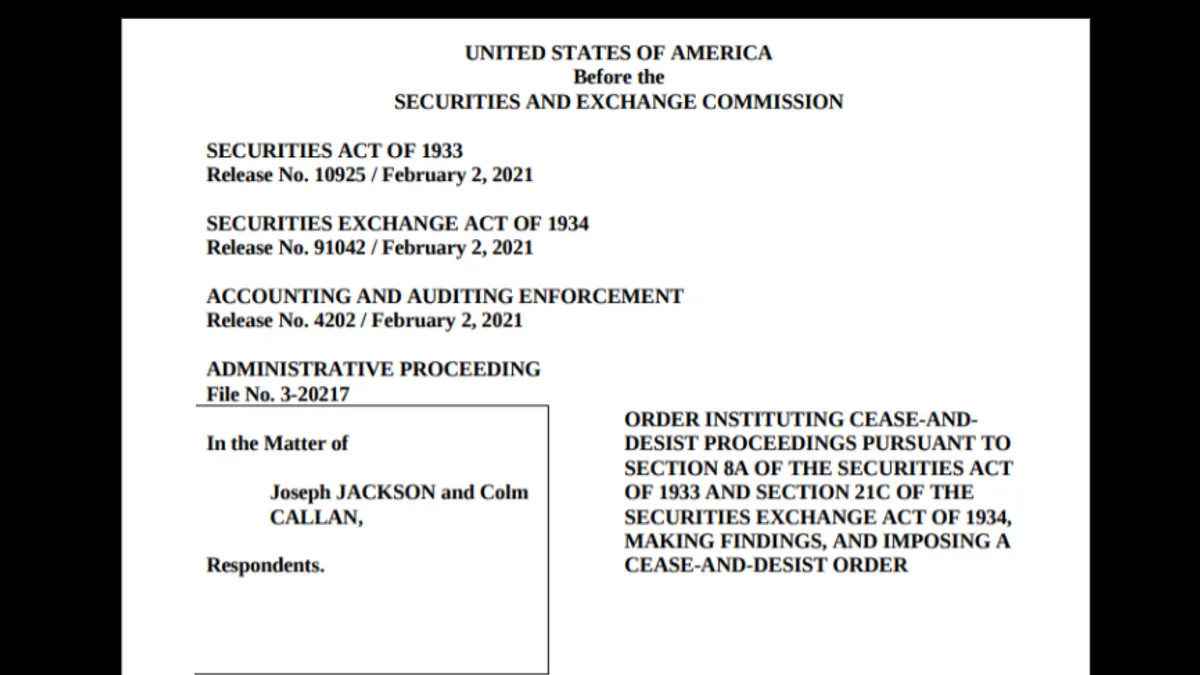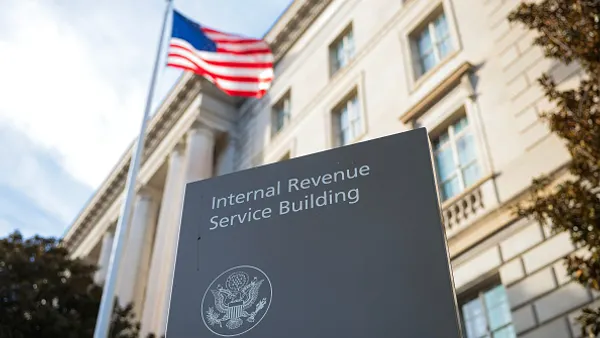Dive Brief:
- The Securities and Exchange Commission (SEC) fined the two former top executives of WageWorks, a flexible-spending accounts provider, for directing accounting staff to recognize revenue the executives had little reason to believe would be received.
- In an agreed-upon settlement with the SEC, former CEO Joseph Jackson was penalized $75,000 and directed to repay WageWorks $1.9 million in incentive pay he earned, and former CFO Colm Callan was penalized $100,000 and made to repay $158,000.
- "The SEC exercised its longstanding authority to hold executives accountable through clawbacks by requiring Jackson and Callan to reimburse WageWorks for compensation they received stemming from their violations," said Melissa Hodgman, acting director of the SEC's enforcement division. The company wasn't charged with any wrongdoing.
Dive Insight:
The violations stem from the executives' insistence on recognizing revenue for work their company undertook to take over the administration of flexible-spending accounts of a large public-sector employer.
Even though the client repeatedly said it would not pay for the company's development and transition work – instead, it would just pay an agreed-to monthly per-account fee – the executives directed accounting staff to amortize recognition of development and transition revenue on a quarterly basis.
In total, the company recognized $3.6 million in revenue for its development and transition work over several years.
Recognition of the revenue helped boost the company's stock price to more than $75 a share, a high, enabling Jackson and Callan to tap stock-based incentive compensation.
"On the basis of this performance, WageWorks awarded Jackson a bonus of 50,000 shares of WageWorks common stock [and] Jackson and Callan both earned cash bonuses," the SEC said.
Over the course of several years, while the executives were directing accounting staff to recognize and amortize the development and transition revenue, the client was insisting it wouldn't pay for the work.
"At no point prior to recognizing [that] revenue … did Callan tell WageWorks's internal accounting staff or the audit firm staff that Client A employees had twice indicated that Client A was not going to pay WageWorks for [that work]," the SEC said.
Regardless of whether Jackson and Callan believed their company was entitled to payment for the work, recognition of that revenue is improper under GAAP, the SEC said, because the company didn't have reason to believe it would be coming in.
"Because Client A had indicated to WageWorks that it would not pay for [that work], WageWorks's collection of [those] revenues was not realizable or reasonably assured," the SEC said.
"Jackson and Callan repeatedly failed to share important information about WageWorks's ability to collect a significant receivable with WageWorks's internal accounting personnel and external auditor," said Erin Schneider, director of the SEC's San Francisco regional office. "Public companies and their executives must consider all material facts — not just the ones that are favorable to their position — when making financial reporting decisions."















